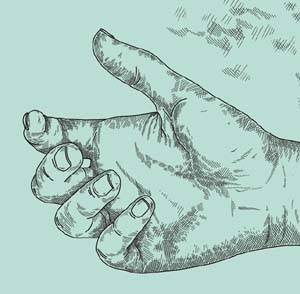News and human rights organisations have led the global condemnation of the Egyptian political and legal systems after a Cairo court this morning sentenced the Al-Jazeera English journalists Peter Greste, Mohamed Fahmy and Baher Mohamed to seven years in prison on terrorism charges.
The three journalists were arrested last December and accused of spreading false news and supporting the Muslim Brotherhood, which was removed from power by the Egyptian military last July. Eleven further defendants were tried and sentenced in absentia, including the British journalists Sue Turton and Dominic Kane and the Dutch journalist Rena Netjes.
During the trial, which has been widely viewed as politically-motivated, the prosecution frequently produced evidence unrelated to Al-Jazeera's reporting on Egyptian politics and the Muslim Brotherhood, including a Sky Arabia news report on cruelty to horses and a music video by the Australian singer Gotye.
In a statement, Al-Jazeera condemned the trial and the verdict, and called on the Egyptian authorities to heed international appeals for the journalists' release:
The support shown for Mohamed, Peter, and Baher has been loud, unified, and determined, and has come from every corner of the world. The call for their freedom has come from journalists, people right around the globe, as well as leaders worldwide. This great solidarity is a stand for basic freedoms - the freedom of speech, for the right for people to be informed, and for the right for journalists around the world to be able to do their job. And, of course, a demand to free our colleagues.
There is only one sensible outcome now. For the verdict to be overturned, and justice to be recognised by Egypt. We must keep our voice loud to call for an end to their detention. Alongside us is a worldwide solidarity, a global call for their release, and a demand for basic freedoms to be respected. The authorities in Egypt need to take responsibility for their actions, and be held to account by the global community.
The sentencing of Greste, Fahmy and Mohamed has drawn global attention to the conduct of Egypt's military establishment, which has consolidated power in the wake of the removal of the Muslim Brotherhood's Mohamed Morsi from power last year. This culminated in the election in May this year of the former commander-in-chief of the armed forces, Abdel Fattah el-Sisi, as president by an official figure of 97% of votes cast.
In a statement in response to the trial verdict, Philip Luther, Amnesty International's Director of the Middle East and North Africa, pointed to the case as emblematic of the Egyptian government's erosion of free speech and civil liberties in the year since the overthrow of Morsi:
This is a devastating verdict for the men and their families, and a dark day for media freedom in Egypt, when journalists are being locked up and branded criminals or ‘terrorists’ simply for doing their job.
The only reason these three men are in jail is because the Egyptian authorities don’t like what they have to say. They are prisoners of conscience and must be immediately and unconditionally released. In Egypt today anyone who dares to challenge the state’s narrative is considered a legitimate target.
According to reports, it is expected that the three men will appeal against the verdict.
To read more on the military's consolidation of power in Egypt under President Sisi, see Rachel Aspden's feature on the embattled secular and Islamist opposition movements, from the current Summer 2014 issue of New Humanist.

